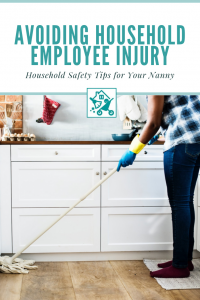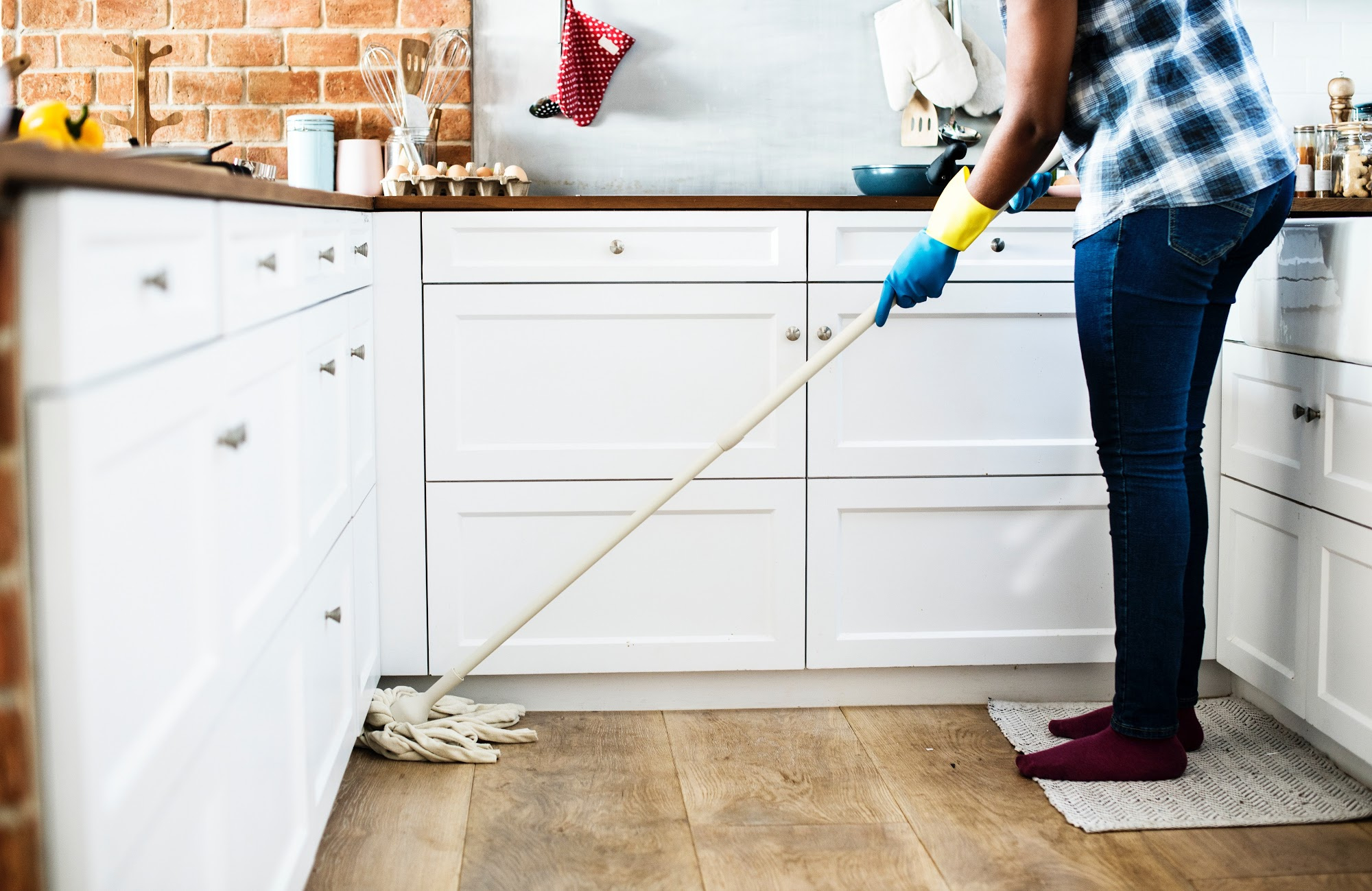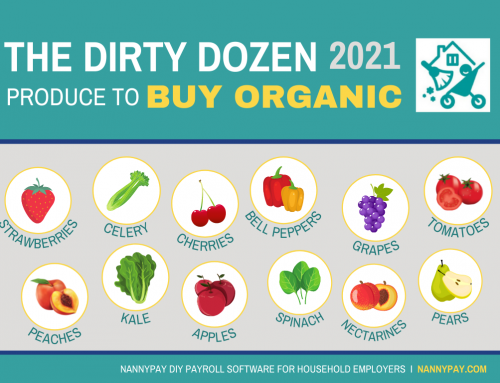Household Safety Tips for your Nanny
A healthy and safe workplace is probably the most important factor contributing to a satisfying work environment. When it comes to hiring a nanny or other domestic worker, such as an elder caregiver, a healthy workplace is of utmost importance.
There is numerous local, state, and federal laws governing a safe and healthy workplace environment, but as a household employer, you can take some additional steps to ensure your workers safety.
Here are a few things you can keep in mind to be better prepared in order to avoid a household employee injury:
Most Common Workplace Injuries
Some people think that workplace safety rules don’t apply to workers who are employed in a home. You have to keep in mind that even though it’s your home, it’s your employee’s workplace. That is the reason why workplace safety measures are just as relevant in your home as in any other location. According to the 2018 Liberty Mutual Insurance Workplace Safety Index, here is a list of the most common workplace injuries:
Overexertion/Strains
Employees in a household are at risk of overexerting themselves since they have to do a lot of manual labor. Nannies, elder care aides, and senior caregivers, to name a few, are generally required to do a lot of physical activities that need the use of hands and limbs such as lifting and carrying children and seniors. Repetitive, heavy physical activity on such a daily basis can cause arm and hand strain or even back pain. Evaluate the areas of your home where your employee will be working to minimize as much as possible the strain and exertion your employee may encounter on a daily basis.
Falls on the same level
This refers to falls that occur on the same level surfaces. For example, falling on snow-covered surfaces, slipping on wet floors, etc. are common injuries that are considered in this category. If your nanny is injured on your property due to a wet bathroom floor or a slippery sidewalk, you may be held responsible for her injury which may result in a “lost time” workplace injury. Be sure to survey your home for ‘trip and fall’ hazards, and shovel your drive and sidewalks as soon as possible after a snowfall and preferably before your nanny’s start time.
Falls to the lower level
This category includes all the injuries that happen when someone falls to a lower level, such as falling from ladders, stairways, roofs, and other elevated areas.
Household work that requires the use of ladders (like gardening, roof repair) or homes that have stairs can cause these kinds of workplace injuries. Make sure that carpets are secured, particularly on stairs, and that handrails have been properly installed and maintained. Any step stools, ladders or other items you provide your household employee in connection with doing their work are appropriate for the task at hand in order to prevent or minimize the risk of falls or injury.
Struck by an object or equipment
Consider this: your gardener is injured when an unsecured tool falls on their head from a shelf in your shed, or your chef gets injured while preparing food for your family in your kitchen due to a faulty or outdated food processor. Such injuries can be quite common but also quite preventable. You should evaluate the work environment of your employees on a regular basis and to identify and repair or replace unsafe conditions, appliances or other tools used in their work for you.
Other exertions or bodily reactions
These include the ‘slips’ and ‘trips’ that are one of the most common accidents to occur in any workplace or home. Your household employee can slip, trip, and fall quite easily in your home since there are so many potential hazards in a home that is easy to overlook. Although your employee works in your home, you live there. Consequently, you are in the best position to determine where these slips and falls are most likely to occur, how they might occur, and how best to prevent them. Take a few minutes a few times each week to survey your home to identify situations or conditions that may present hazards to your employee as well as your family.
Protect Your Employee and Your Family with Workers’ Compensation Insurance
Employing a household worker always comes with a potential risk of workplace injury in your home. That’s why it is so important to protect your employee and the financial security of your family by having a workers’ compensation insurance policy in place.
Although generally required for business employers, state laws vary on the requirements for household employers, with some states requiring you to purchase workers’ compensation coverage and others making it optional. Whether required of you or not, workers’ compensation insurance provides valuable protection to both you and your employees. Generally speaking, workers’ compensation provides guaranteed payment for medical care and lost wages to your employee regardless of fault in the event of a workplace injury, while insulating the employer from lawsuits for those same covered injuries.
Why Choose NannyPay DIY Payroll Software to File Your Household Employee Tax
NannyPay is DIY payroll software for household workers and makes it extremely easy to track the wages and withholdings for domestic employees such as nannies, health aids and senior caregivers. NannyPay even generates at year-end, at no additional cost, IRS Forms W2/W3 and Schedule H, the form most household employers must use to report and pay their federal employment taxes. Most expensive payroll services will charge you extra for those year-end reporting forms. So why pay more? For more than 20 years NannyPay has helped families ensure they are compliant with the law while saving you a lot of money over expensive household payroll services. Download a fully-functional copy of the software and try it for free for 30-days.








Leave A Comment
You must be logged in to post a comment.